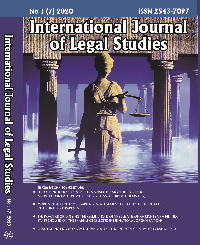STRATEGY OF CIVILIAN JOINT TASK FORCE MILITIA IN COMBATING BOKO HARAM IN NORTHERN NIGERIA
STRATEGY OF CIVILIAN JOINT TASK FORCE MILITIA IN COMBATING BOKO HARAM IN NORTHERN NIGERIA
Author(s): Modu Lawan GanaSubject(s): Law, Constitution, Jurisprudence
Published by: Międzynarodowy Instytut Innowacji "Nauka - Edukacja - Rozwój"
Keywords: Boko Haram; Civilian Joint Task Force; Counterinsurgency; Security
Summary/Abstract: Since 2013, the northern region of Nigeria has witnessed the unprecedented mobilization of militia group Civilian Joint Task Force to aid combating the Islamic fundamentalist Boko Haram. The participation of the militia was reportedly successful in routing the insurgent. Before the CJTF, Boko Haram defied most of the counterinsurgency measures of the government including the military and the political approaches. However, despite the successes of the CJTF, the strategy that influences the successes was not adequately known. This article, therefore, investigated the strategy of the CJTF that influences its successes. The study was conducted using a qualitative method designed in a case study. Data were collected from thirteen informants through in-depth interviews supported by non-participant observation. The finding shows that CJTF is a kind of informal self-defense group that emerged in response to the inadequate protections by the State. The combating successes of the group were influenced by the information-centric approach of its campaign. Careful intelligence gathering and procession along with the sociocultural linkage of the participants and in-depth knowledge over the physical terrain emerged influential to the groups’ combating. The article recommended that the Nigerian government should re-strategize its existing conventional counterinsurgency approach to adapt to the population-centric paradigm. The government should also adopt palliative measures of promoting sustainable counter-insurgency that should focus on inclusive governance, accountability, and addressing socio-economic issues of poverty and unemployment with all levels of seriousness rather than sticking to the security-only campaign.
Journal: International Journal of Legal Studies (IJOLS)
- Issue Year: 7/2020
- Issue No: 1
- Page Range: 345-360
- Page Count: 16
- Language: English, Polish

